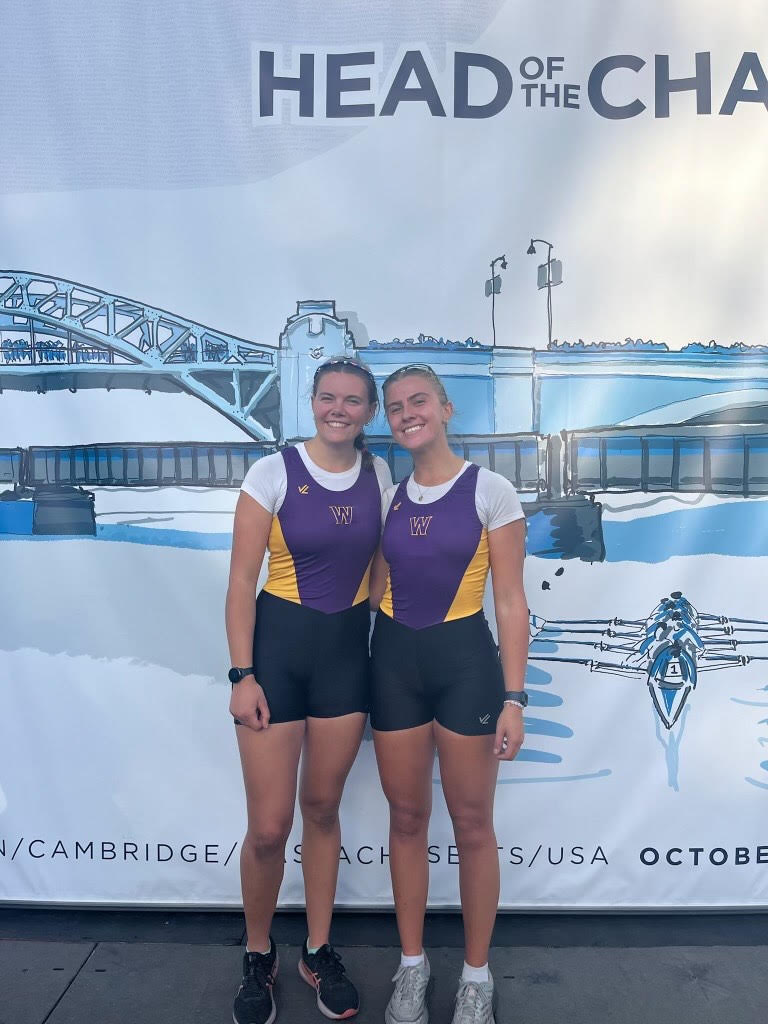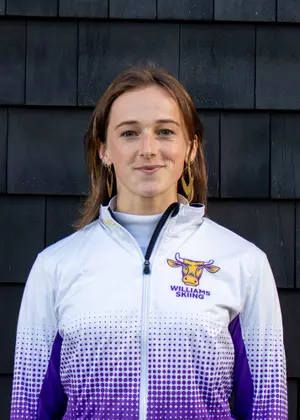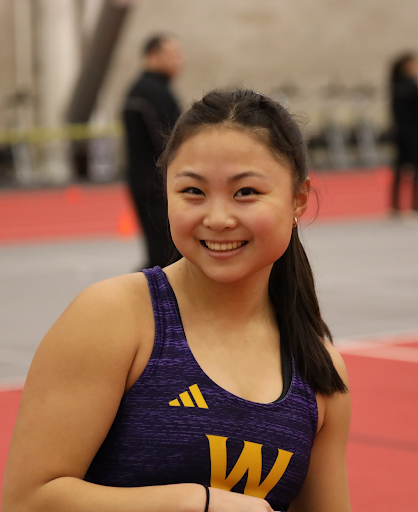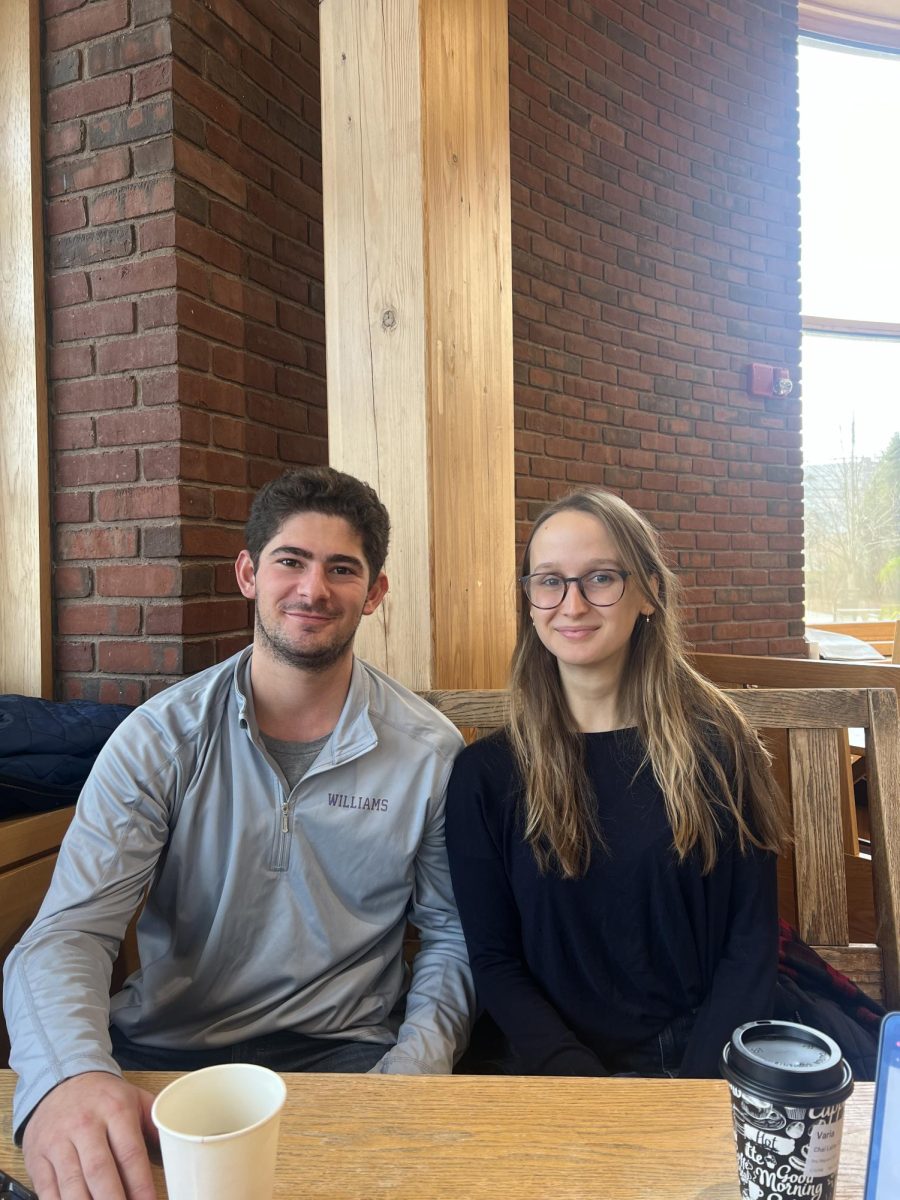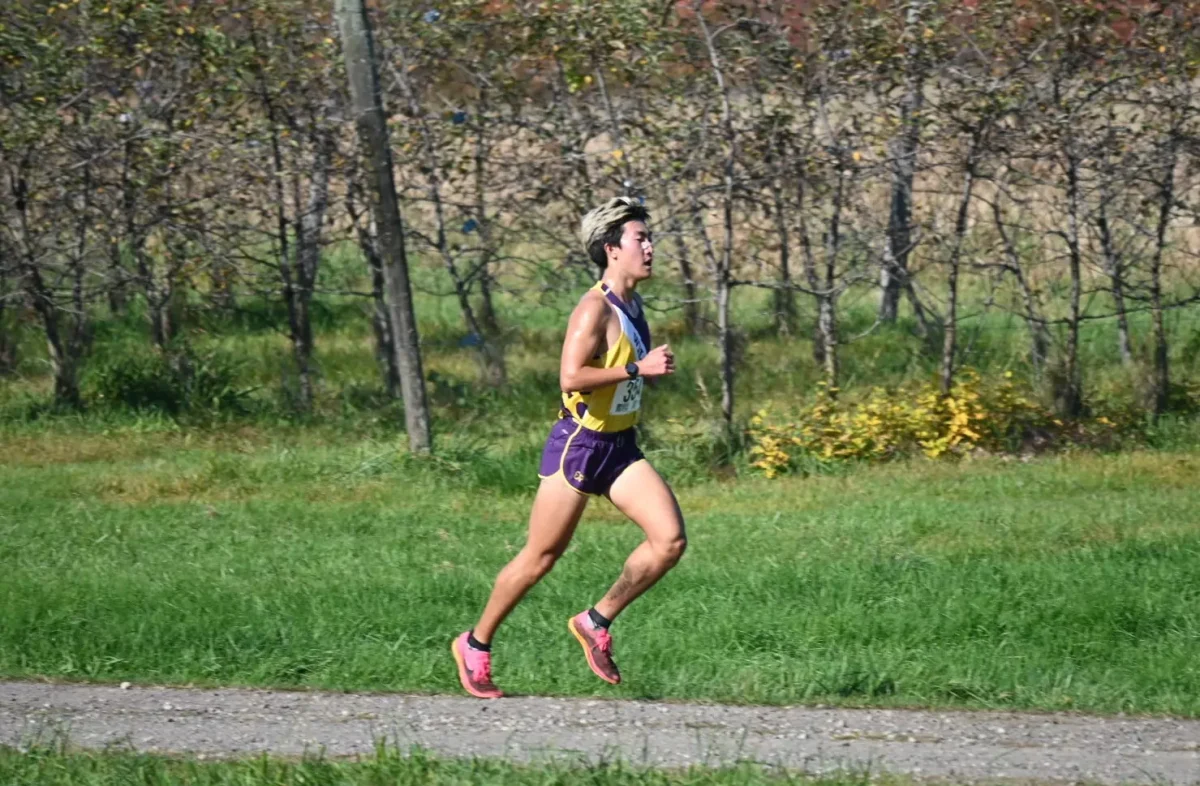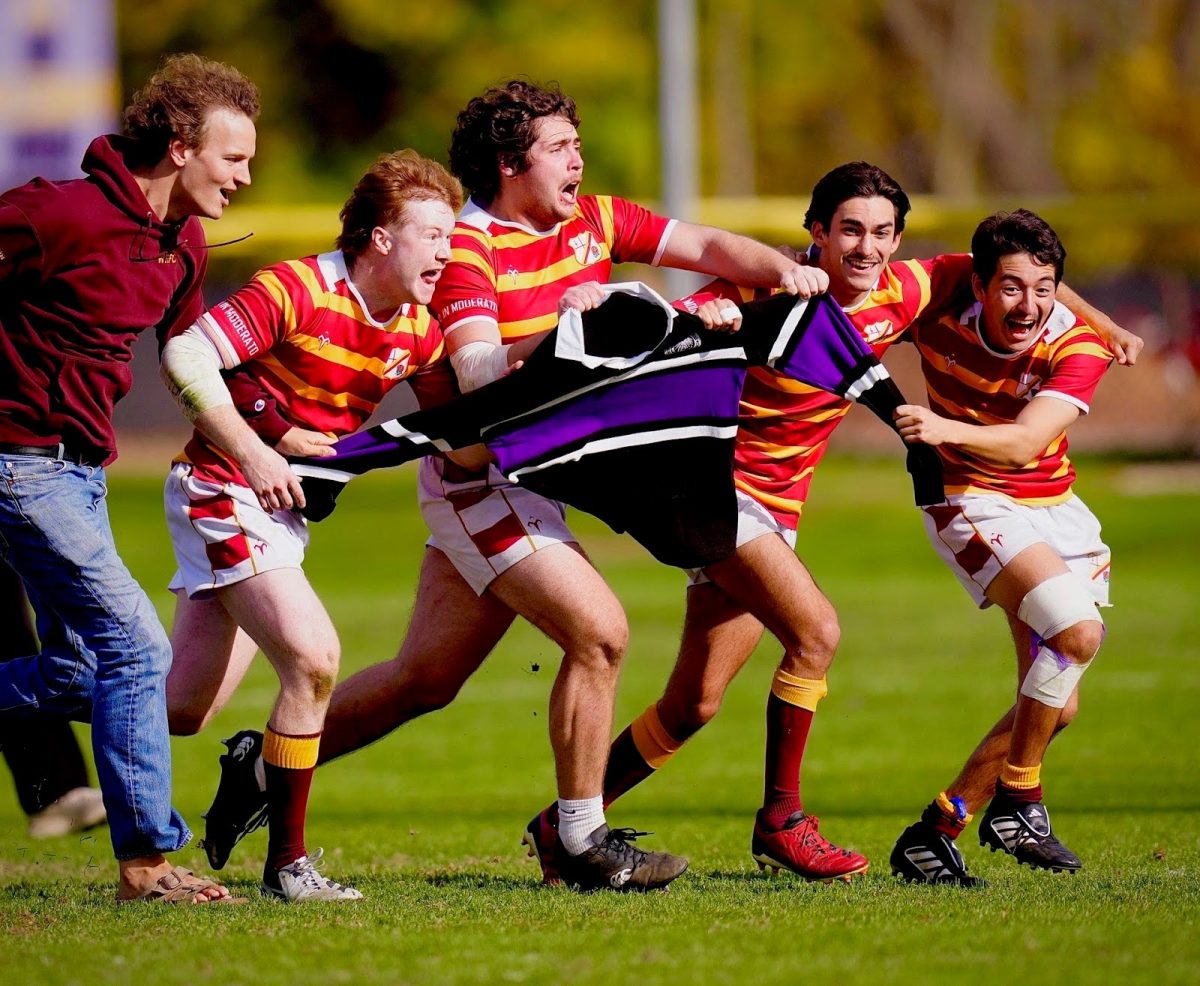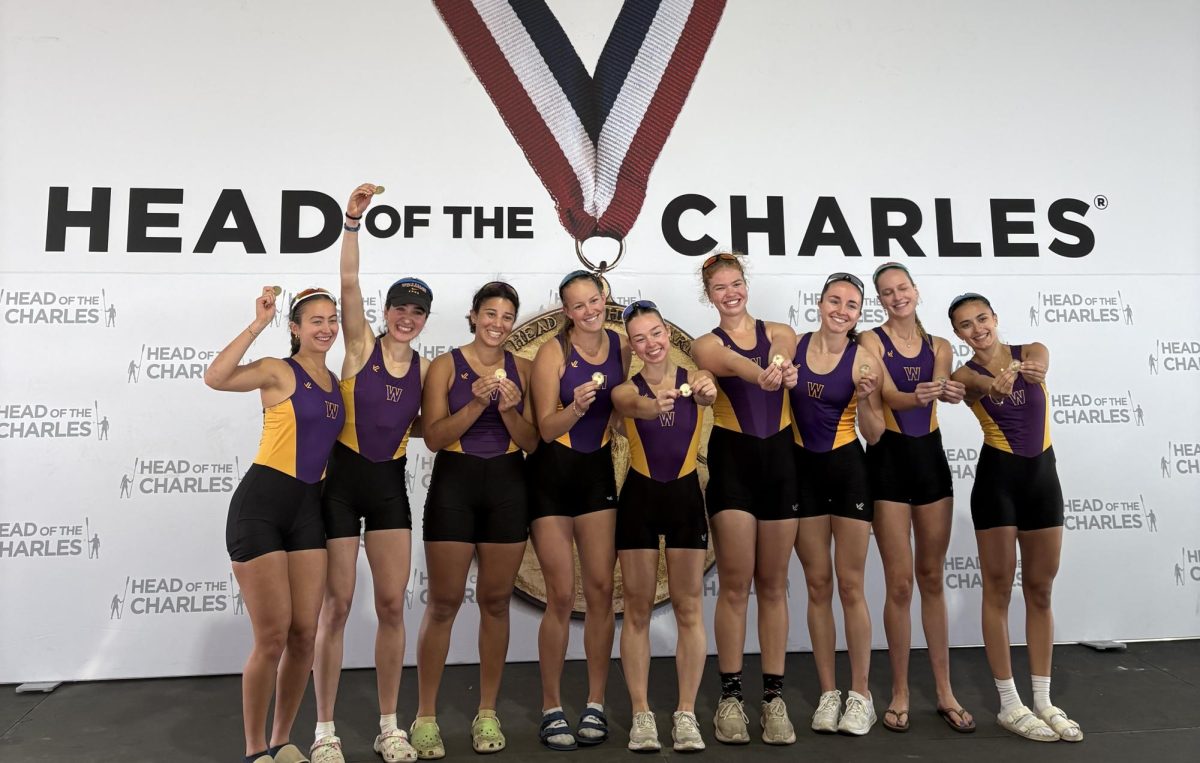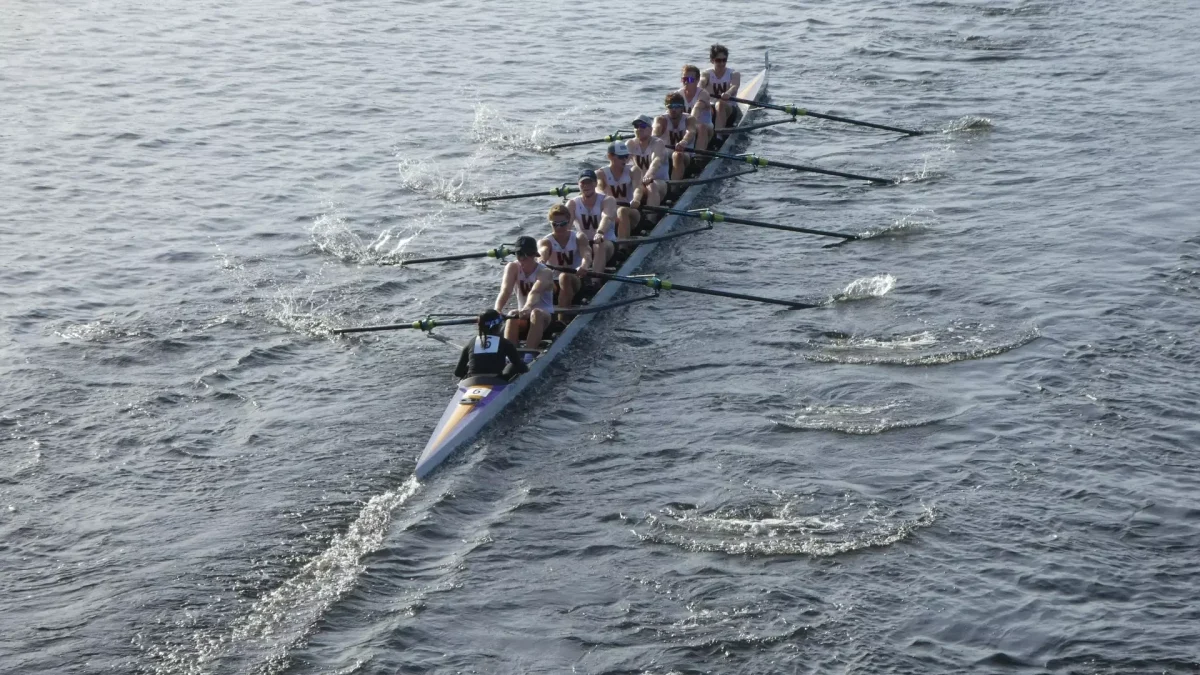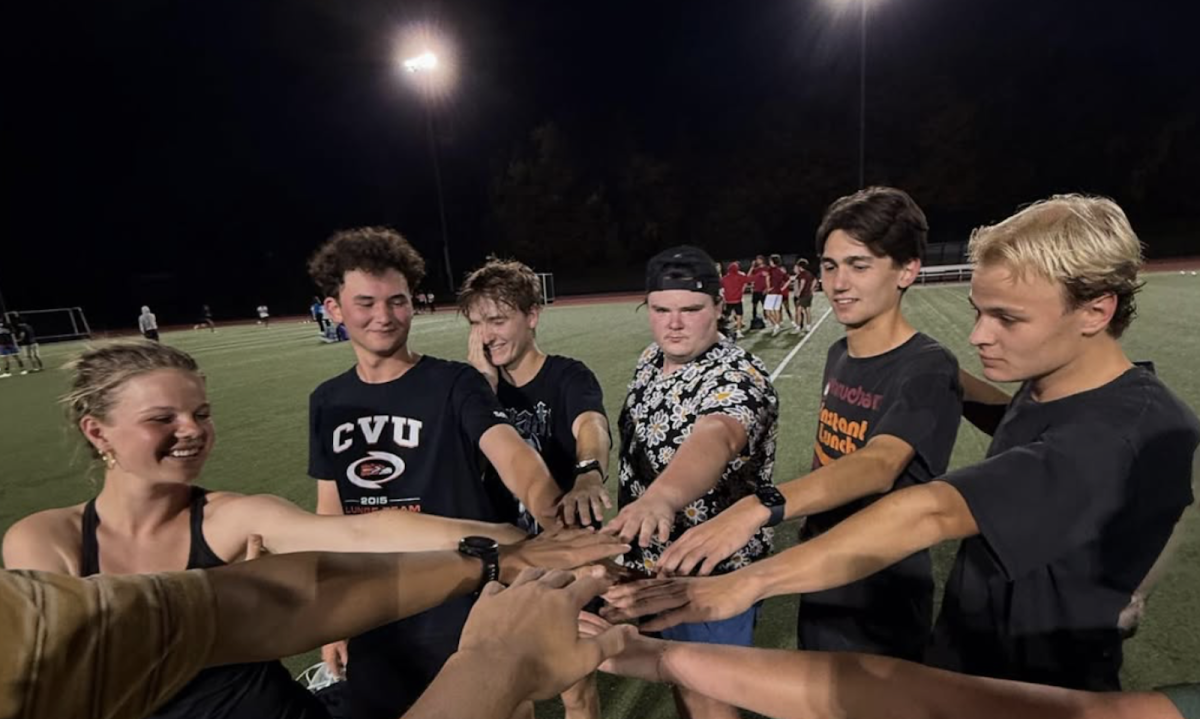
Team: Men’s track and field
Hometown: Celebration, Fla.
Major: political economy and environmental studies
This interview has been edited for length and clarity.
Ben Niewoehner (BN): How did you get into track? When did you learn you had a knack for it?
Oscar Newman (ON): It’s actually a funny story. I started competing in track in eighth grade, and it was the last sport of the year for our middle school, kind of an April/May sport. There was a stupid little plastic trophy, and you had to play all sports to get it, so I did track. I had always kind of known I was pretty fast, based on recess, and I ended up doing pretty well in the eighth grade. But when I got into ninth and tenth grade, I was just not that good. I was going to drop it, leave it behind, but realized I was just good enough to get recruited by Div. III at Williams College, and that’s how I ended up here.
BN: How has the early part of the season gone for the team?
ON: Given everything that’s happened this year, it’s gone as well as it could’ve gone. We’ve had three meets this year. As a lot of campus knows, our practice schedule has been a little bit weird because we don’t have an indoor facility on campus. We’re traveling to North Bennington, Vt., every day for the speed and power portion of practice. It’s not terrible — it’s a 25-minute drive. The sprinters, jumpers, and pole vaulters will all go there, while distance runners will stay on campus. Honestly, the facility has been great, and the drive is the only negative part. But the results have been good. We’re definitely still in the early part of our season, so the expectations are low, but as we move into February, we go to some fast meets and get to measure ourselves against the competition.
BN: How has your season been going? What events are you focusing on?
ON: It’s been good. I’m a short distance sprinter, although not as short as I’d like to be. I prioritize the 200m and the 400m, but I also raced the 60m this year. I’m pretty tall and I’m not the best block starter, so it’s not my event, but it’s always fun to do events like that, because your expectations are low and there’s really no pressure going into it. This coming weekend is the Boston University Valentine, which is a really big indoor meet, and I’m going to race the 200m and 400m there. We’ll see how it goes. It’ll be a nice way to see where I’m at.
BN: Do you view the indoor season as preparation for outdoors or is it more its own season?
ON: That’s a good question. I’m from Florida, and we did not have indoor track there. The only reason to go indoors was, in the summer, when it was really hot, as opposed to when it’s really, really cold here. Events like the 400m feel like totally different races indoors versus outdoors. It’s the same number of meters, but it’s two laps on an indoor track as opposed to one on an outdoor track. During the indoor 400m, you all end up in the same lane as other runners, so it’s almost like a contact sport in a way, whereas during the outdoor 400m, you stay in your lane the whole time. It’s just different, but we don’t take it any less seriously. We may not be going as fast as we’ll be going in May, but this is still half of the reason we’re here, with outdoor being the other half.
BN: What are you excited about for the rest of the year? Both within track and outside of it?
ON: This is my last semester here. I’m grateful to have been here for the last four years, and I’m sure there’s a lot of things I took for granted from being at a college like Williams that I’m gonna miss when I’m gone. The team has been through a lot, with Alex’s passing, but I’ve been really impressed, especially with our first-years, at how they’ve been able to lean on each other and find ways to want to compete. I’m really excited for them. A lot of them are trying new events for the first time, or prioritizing different events for the first time, or just getting a full season of training in.
BN: How are you feeling about this being your final season of track?
ON: A lot of track athletes, especially at Williams, weren’t career track athletes. That was the case for me — I was a soccer kid. But, especially at Williams, where sports are such a big part of your identity, not doing track anymore is going to be interesting. I’ve gotta figure out how I’m going to stay in shape. Some sort of hobby, maybe soccer or pickup basketball. But there are certain times in my head that I tell myself, if I run them this year, maybe I’ll try to keep running. Maybe that’s delusional. This may be my final season of track. Approaching every meet like it could be my last is the goal.
BN: You’re a school record holder. How does it feel to have left your mark on the program?
ON: It’s a really cool thing to do, with the indoor 400m, and I’m lucky enough to have been a part of a few school record relay teams. Whenever [the new Multipurpose Recreation Center] is built, my name will be on a wall somewhere, and that’s cool to think about.
BN: How has the team evolved over your four years?
ON: We’re a bit stronger on the speed and power side than we used to be, but honestly, especially on the men’s side, as a culture, we haven’t changed. I’ve been really fortunate in that the senior leadership every year has been fantastic. It didn’t matter what event they did, they were very intentional about culture-building [and] being there for everybody. Track is a tough sport, because as much as you want it to be a team sport, it’s fundamentally an individual one. A relay is an aggregation of individual times, for example. But it doesn’t ever feel that way. Maybe our strengths have changed, but our team culture is the same.
BN: What advice would you give the first-years for their track careers?
ON: I have two types of advice. Specific to our sport: Less is more. Track is a long season, and you’re always dealing with some sort of injury or tightness. For some sports, let’s say you’re a soccer or lacrosse player and you’re injured, competing at 95 percent of your physical peak is okay, and you can play a little bit smarter. In track, you have to be at 100 percent. And I have no complaints about our first years this year. If they can keep that energy and find ways to infect incoming groups with that same excitement and gratitude that they’ve brought [this year], then this track team will be in great shape for the next four years.
BN: Final question: What will you miss most about being a track athlete at the College?
ON: This is cliché, but it’s definitely the team. The relationships I’ve been privileged enough to build on the team, just because I’m lucky enough to be a little bit faster than the average person, are relationships that I’ll keep forever. I’ll miss the structured hang-out time, either at practice, on the bus, at team dinners, or at meets. I’ll miss all of those interactions.





